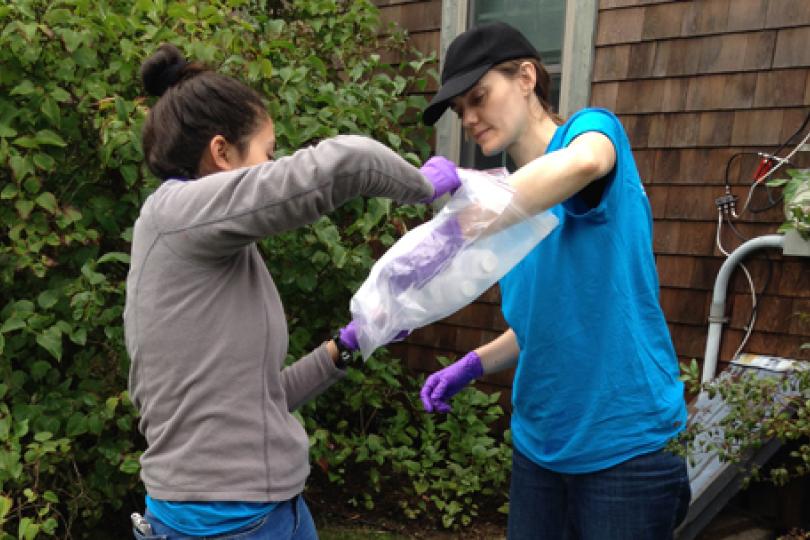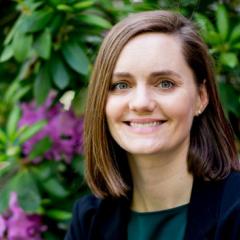Guiding community-based action on PFAS drinking water contamination
Through this Switzer Leadership Grant, Lauren Richter contributed as a key member of the Silent Spring Institute PFAS research team. PFAS are a class of extremely persistent synthetic chemicals common in nonstick, stain-resistant, and waterproof consumer products and widely found in drinking water of millions of Americans. Lauren led community workshops on PFAS at regional and national conferences, investigated the public costs of PFAS drinking water contamination on Cape Cod, and provided expert testimony at hearings on PFAS bills before state legislative committees in Rhode Island. Collaborating with her mentor, Dr. Laurel Schaider, Research Scientist at Silent Spring Institute, on private well water data collection, Lauren expanded her experience in community-engaged research and science translation. Lauren pursued in-depth, qualitative interviews with stakeholders responding to PFAS contamination on Cape Cod. She will be the lead author on a peer-reviewed article detailing the public costs of PFAS contamination on Cape Cod, illuminating the experiences of decision-makers and residents.
PFAS project objectives included supporting local, state, and national-level actions to intervene in the rapidly unfolding PFAS drinking water contamination crisis. The team conducted local education and research translation efforts where Lauren was able to share her social science perspectives on the history and evolution of scientific knowledge on PFAS as a class of chemicals. The project produced and expanded a range of publicly-oriented web tools to support information exchange among PFAS-contaminated communities throughout the U.S. It mobilized research to support grassroots assistance, advocacy, and policy change. This project drew upon partnerships with regional nongovernmental organizations, grassroots community groups, and public health scientists to strengthen the production of information on PFAS and press for appropriate policy responses.
To inform and support government decision-makers and municipalities in testing and treating contaminated drinking water, the team collected data on PFAS drinking water levels, published peer-reviewed scientific articles, provided expert testimony, submitted written comment on proposed policy, and met directly with elected officials and their staff. Lauren and Dr. Schaider were also co-organizers for a national PFAS conference that brought together over 200 participants from many different sectors, helping raise the profile of PFAS nationally and build networks of leaders from communities addressing PFAS contamination across the country and globally.

